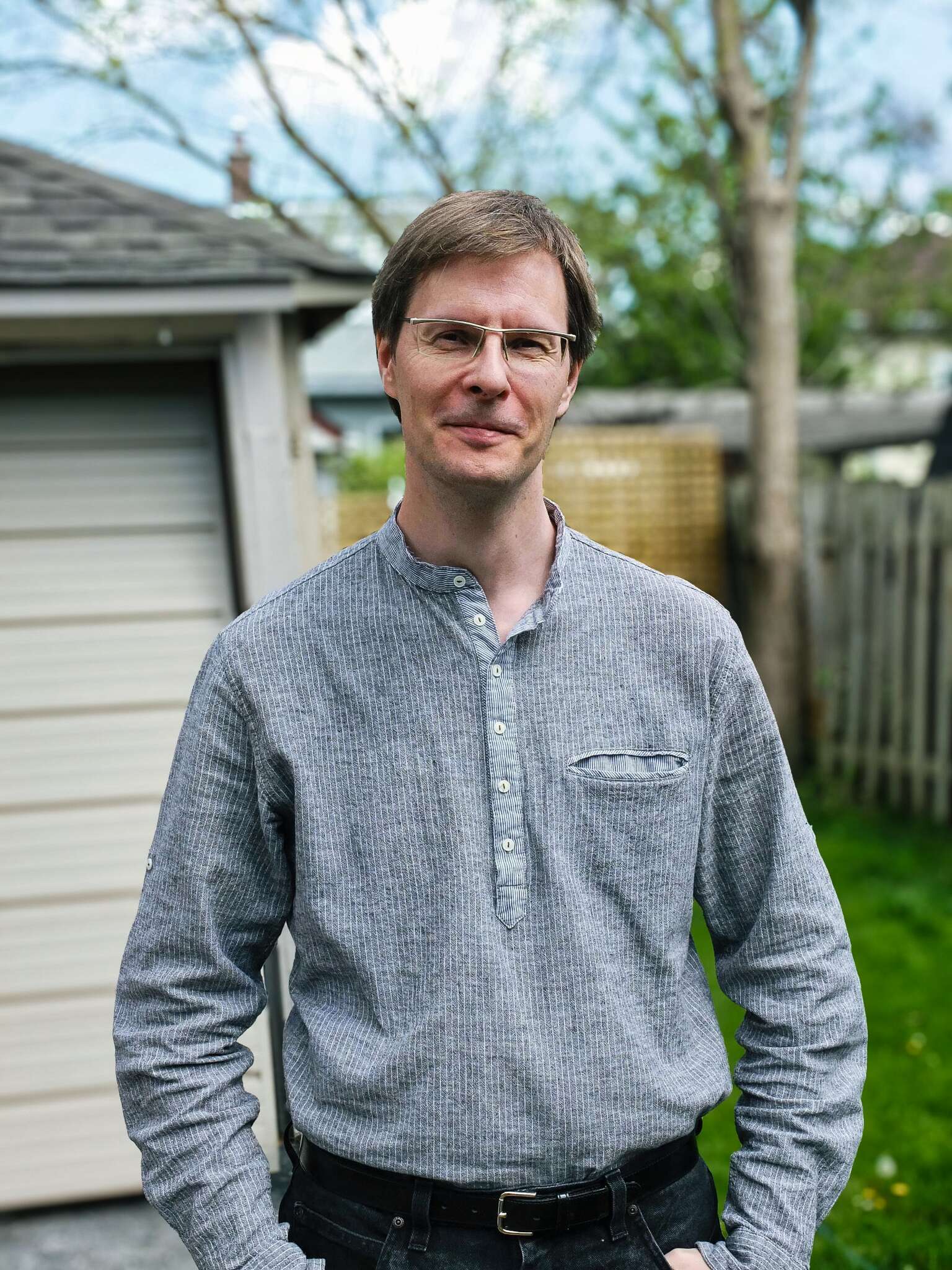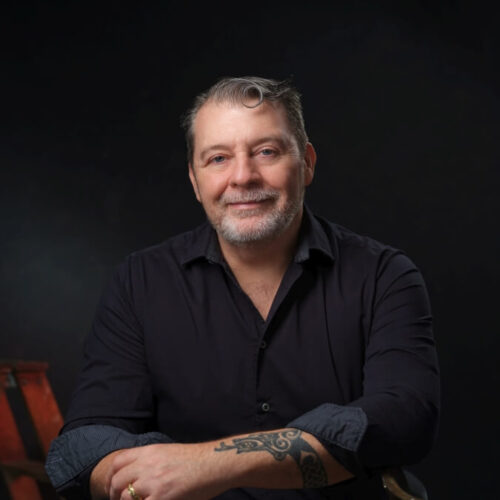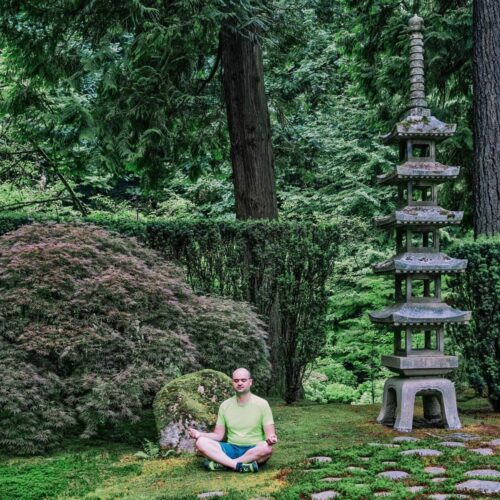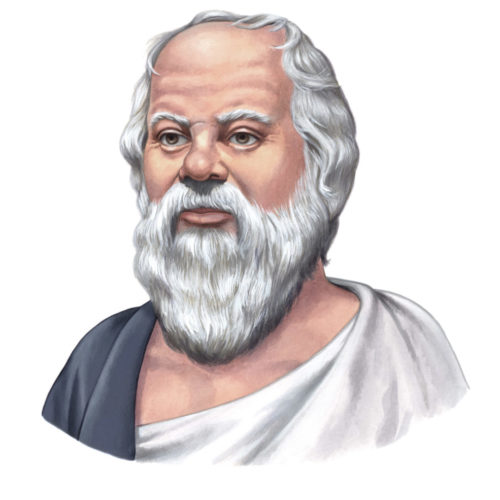Karl Schroeder: The Singularity is an Old Idea. Keep Moving Forward!
Socrates / Podcasts
Posted on: May 11, 2012 / Last Modified: July 6, 2024
Podcast: Play in new window | Download | Embed
Subscribe: RSS
 Karl Schroeder is one of those fantastic science fiction authors and futurists who, despite his numerous and profound books, have not quite made it into the mainstream yet. In fact, it was just a week ago that Eric Boyd emailed me to suggest that I interview Karl on Singularity 1 on 1, and I was skeptically struggling to figure out who Schroeder is, why I’ve never heard of him before, and why he would be a good interview subject.
Karl Schroeder is one of those fantastic science fiction authors and futurists who, despite his numerous and profound books, have not quite made it into the mainstream yet. In fact, it was just a week ago that Eric Boyd emailed me to suggest that I interview Karl on Singularity 1 on 1, and I was skeptically struggling to figure out who Schroeder is, why I’ve never heard of him before, and why he would be a good interview subject.
Little did I know that Karl Schroeder would turn out to be one of the most brilliant and enjoyable interviewees I have ever had on the show. He managed to challenge and stimulate me intellectually and provided alternative lenses that I can now use when looking at the world and thinking about the future. I can honestly admit that it took only an hour to become a Schroeder fan, and I have already finished reading one of his earlier books – Sun of Suns.
During our discussion with Karl, we cover a wide variety of topics such as his Mennonite background and early interest in science fiction; the Hunger Games and Karl’s peacekeeping foresight novel for the Canadian military – Crisis in Zefra (free download); the differences and the similarities between foresight and science fiction; the technological singularity as a possible though, in Karl’s estimate, not a probable scenario for our future; the concepts of the technological maximum, rewilding, and natural selection; Schroeder’s Law as a solution to the Fermi Paradox; his novels Lady of Mazes and Sun of Suns; exponential growth, systems theory and limiting factors thereof; transhumanism and his concepts of trans-lionism; trans-dogism and inhumanism.
My favorite quote from Schroeder:
You have to keep moving forward. […] The singularity is not the most interesting current idea. It’s old at this point. You’ve got to keep up. You’ve have got to look at what’s going on now. […] Sure, take the singularity – use it – it’s a lens. Develop other lenses! Use other lenses! Keep looking forward! Keep looking for new ideas, for blind-spots! And the world will continue to be a very interesting place.”
As always, you can listen to or download the audio file above or scroll down and watch the video interview in full. To show your support, you can write a review on iTunes, make a direct donation, or become a patron on Patreon.
Technological Maximum (as defined by Karl Schroeder):
You hit the technological maximum when you have systems that can rapidly perform natural selection on technological designs. As one of the characters puts it in my novel The Sunless Countries, “Everybody’s equally able to evolve new devices because everybody has the same, perfect physics model. Once you’ve got that model, and fast enough calculation, nobody in the universe should be able to come up with a machine that you can’t duplicate. You just select for it and its design eventually pops out. So there’s a technological stalemate everywhere in the universe.” This is analogous to the biological stalemate that pertained on Earth prior to the evolution of human beings.
The Rewilding (as defined by Karl Schroeder):
The Rewilding, by contrast, is simply a vision of what happens when you erase the distinction between the natural and the artificial. Some cognitive studies, for instance, suggest that the human brain offloads difficult calculations to the physical environment whenever it can. When catching a pop-fly in baseball, for instance, the brain does not attempt to do the calculations necessary to predict the trajectory of the ball; instead it gets you to run backward while occluding the ball with your glove and keeping a fixed angle between your arm and the horizon. This replaces the calculations. Such ‘partial programs’ mean that you’re not required to process all information internally; you use your ambient environment as part of your thinking apparatus. In The Rewilding, we have a world of physical partial programs. Why build a water treatment plant when you can use the local wetlands for the same purpose? In The Rewilding, we establish mutually beneficial relationships with physical and ecological systems while not compromising our ambitions; if you need a nuclear power plant, you still
build a nuclear power plant, but if there’s a partnership with some natural system that will provide the same result, you go that way.
Who is Karl Schroeder?
Karl Schroeder is one of Canada’s leading science fiction and fantasy authors. He lives in Toronto, Ontario, and divides his time between writing science fiction and consulting in foresight studies (chiefly concerning the future of technology). He is the author of nine novels, as well as the influential “foresight scenario fiction,’ Crisis in Zefra, which was written for the Canadian army in 2005. His novels have been translated into French, German, Spanish, Russian and Japanese. In addition to his fiction works, Mr. Schroeder has published The Complete Idiot’s Guide to Publishing Science Fiction, written with Cory Doctorow (MacMillan, August, 2000). As an active member of the Canadian speculative fiction writing community, he helped found SF Canada, the Canadian national science fiction and fantasy writers’ association, in 1989, and was president from 1996 to 1997. He taught science fiction writing at George Brown College from 1992 to 1994.
Karl was born and raised in Brandon, Manitoba. He has a Mennonite background, and in fact comes from the same southern Manitoba Mennonite community as “golden age” SF grand master A.E. van Vogt. Growing up, Karl assumed that novel writing was a career option because his mother had published two novels with Zondervan, “Year of Discovery” and “The Secret of His Presence” and so books with Schroeder on their spines were in the bookshelf along with those of Andre Norton, Agatha Christie, and others. He moved to Toronto in 1986, married Janice Beitel in 2001, and he and Janice have one child.
Since 2003 Karl has been doing work in strategic foresight (also known as futurism) for clients such as the Canadian government and army. In 2011 he achieved a Master’s degree in Strategic Foresight and Innovation from OCAD University of Toronto. He regularly consults on the future of technology, and also does public speaking both in person and in the media on the intersection of science and society, and on trends for the future.
Karl’s novels present technology as a realm of experimental philosophy, where previously theoretical constructs are given flesh. His current concern is the notion that “technology is legislation” and that because of this fact, humanity will not gain control of its own political or evolutionary destiny until we learn to anticipate and control the effects that new technologies have upon society.









